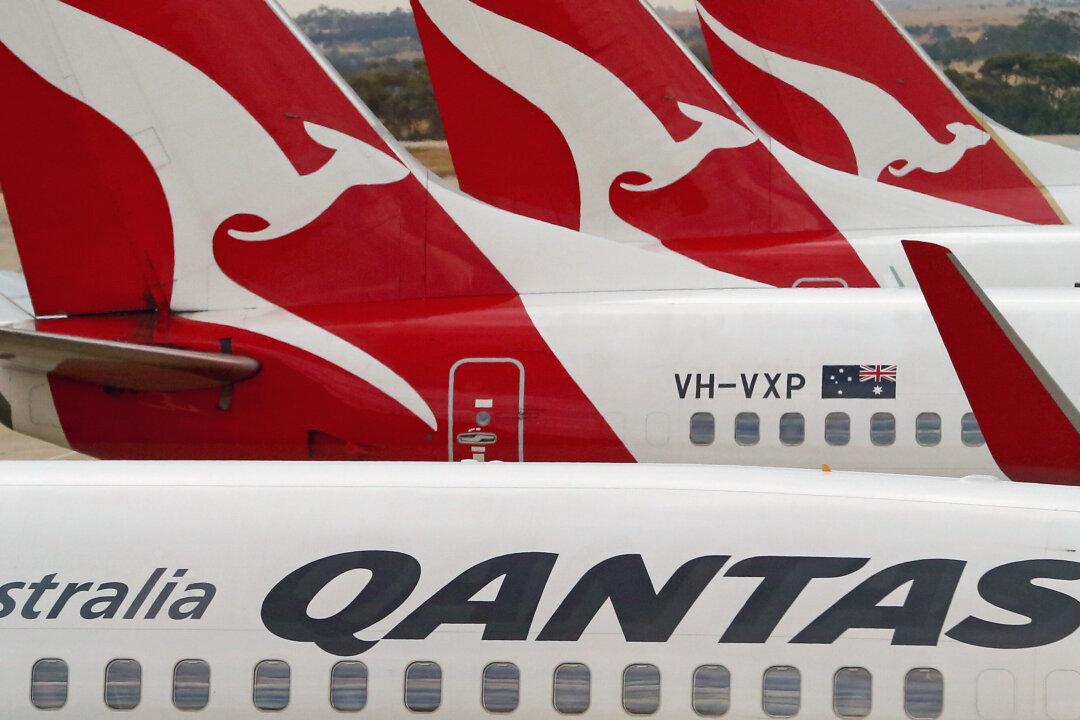Australia’s major airline and international carrier Qantas is making vaccines mandatory for all staff as part of its efforts to ensure workplace safety.
Frontline employees, including cabin crew, pilots, and airport workers, will all need to have received their two shots of a COVID-19 vaccine by Nov. 15. The remainder of its staff will need to be vaccinated by the end of March next year.




